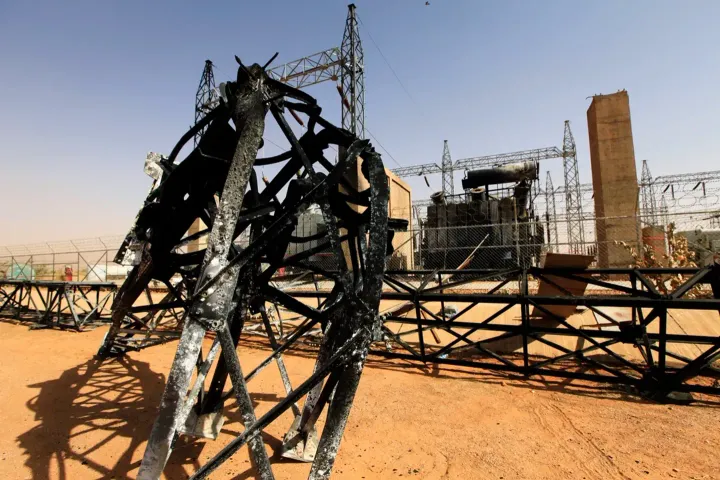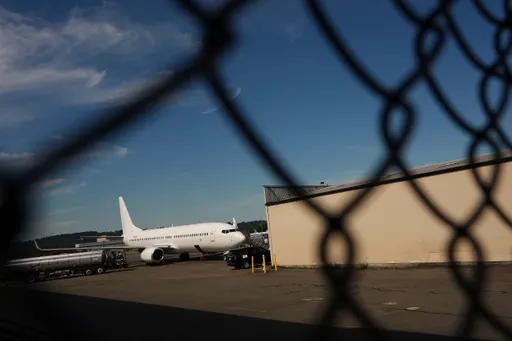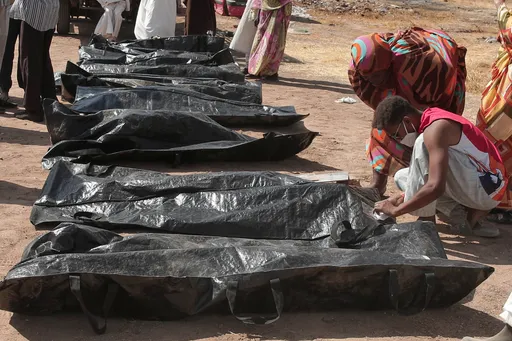King Charles III and his spouse Queen Camilla are starting a four-day tour of East African nation Kenya amid questions over the United Kingdom's colonial abuses in the country.
"The visit will acknowledge the more painful aspects of the UK and Kenya's shared history, including the Emergency (1952-1960)," Chris Fitzgerald, the deputy private secretary to the King, said in his confirmation of the royal visit.
"His Majesty will take time during the visit to deepen his understanding of the wrongs suffered in this period by the people of Kenya," Fitzgerald added.
Besides the King's understanding of the colonial abuses in the country, the Kenya Human Rights Commission (KHRC) also wants him to acknowledge and apologise for the pain inflicted by Britain to Kenyans from 1895 to 1963.
"We further demand effective reparations for all the atrocities committed to the different groups in the country," KHRC said on Sunday.
Tea farms
Kibore Cheruiyot Ngasura, who is 100 years old, was dislodged from his ancestral home in the Rift Valley's highlands of Kericho to pave way for British occupancy and tea farming.
Ngasura was relocated to Gwassi, some 200 kilometres southwest of Kericho. He was part of the community that had been accused of resisting the British rule.
He had hoped to meet Queen Elizabeth during her 1952 visit to Kenya to demand justice. However, the meeting did not materialise because the queen's father died, forcing her to return to London.
More than 70 years later, Ngasura has a message for Elizabeth's son, King Charles III, as he comes to Kenya on a state visit.
"I wish to inform him that we should be compensated for the hardship that we went through," Ngasura told Reuters outside his house, a small wooden and iron structure on a grassy hill with two lightbulbs and no running water.
Gross human violations
For Ngasura and his community, the injustices caused by the British colonisation are life-long scars.
A 2021 UN report said more than half a million Kenyans around the western town of Kericho suffered gross human rights violations, including unlawful killings during British colonial rule.
The colonial administration took hundreds of square kilometres of land that communities in Western Kenya had lived on for generations and handed it to British settlers.
Much of it became tea plantations that today belong to multinational companies, the UN report said.
"Our people, most of them, are living below poverty level," said Joel Kimetto, a representative of the Kipsigis ethnic group living in Kericho.
Fertile lands
"The majority of the vast fertile lands were taken by the British and our people were chased away to the native reserves where it is hilly, rocky and unproductive," he said.
The British ruled for more than six decades before Kenyan won its independence in 1963.
A spokesperson for the British government's Foreign, Commonwealth and Development Office noted that the UK government had previously expressed regret for abuses committed during a 1952-1960 uprising in Central Kenya against colonial rule.
It agreed to an out-of-court settlement in 2013 to pay about $25 million to some 5,000 elderly Kenyans who suffered torture and abuse during "the emergency" after a London court ruled the victims could sue.
“We believe the most effective way for the UK to respond to the wrongs of the past is to ensure that current and future generations learn the lessons from history, and that we continue to work together to tackle today’s challenges,” the spokesperson said.
'No intention' to compensate
The spokesperson did not address the allegations raised by other aggrieved communities, which are separate from the abuses during the emergency. Buckingham Palace did not respond to a request for comment.
Charles will not travel to Western Kenya during his visit, which will take him to the capital Nairobi and the coastal city of Mombasa, according to a statement from the palace.
The British government has not been receptive in the past to requests by the community in Kericho to discuss compensation.
In 2019, it informed the communities it had "no intention to enter any process" to resolve the claims, according to the UN report.
200-kilometre journey on foot
Ngasura said he was about 12 years old in 1934 when the British rounded up members of his community and forced them to walk a distance of 200 kilometres to Gwassi in Western Kenya.
Following protests by the young men, he and a few dozen others were relocated in 1945 to a detention camp closer to Kericho town.
They were finally released in 1962, but the land where they had once grazed their livestock and collected honey, had been taken over by British settlers and tea companies.
Today, Ngasura and his family live on a tiny plot, on which they grow maize and keep some half-a-dozen cows. It is no comparison to what he knew as a child.
"We could take cows anywhere. The land was huge," he recalled. "This land is not big enough. Otherwise, we would have kept a lot of cows and grown coffee."
The monarch's itinerary
Highlights of Charles and Camilla’s state visit include a tour of the Nairobi National Park.
The King and Queen will also travel to Mombasa to watch the Kenyan marines trained by the Royal Marines.
Fitzgerald said: “The King and Queen’s programme will celebrate the close links between the British and Kenyan people in areas such as the creative arts, technology, enterprise, education and innovation."









.JPG?width=512&format=webp&quality=80)












